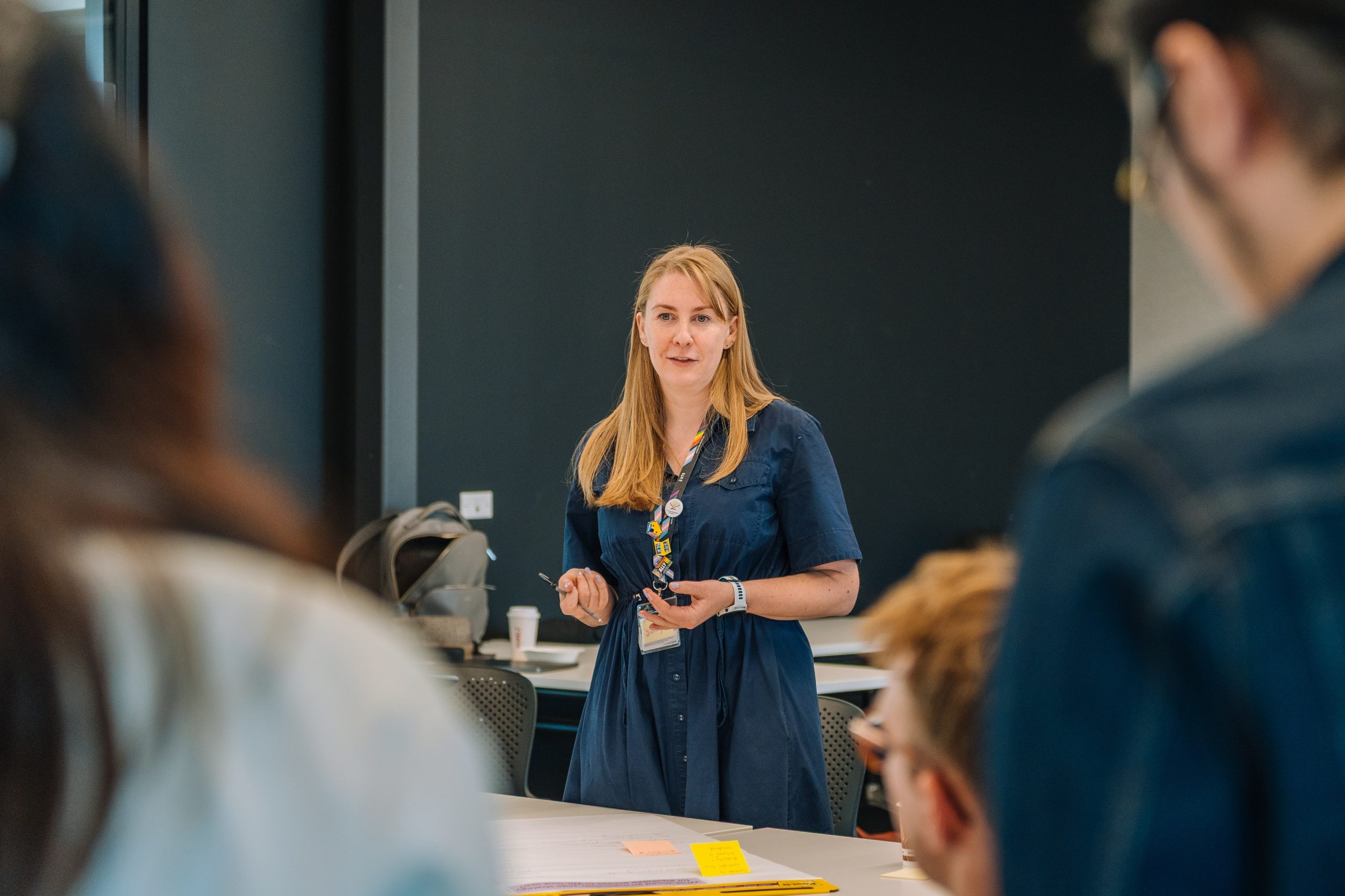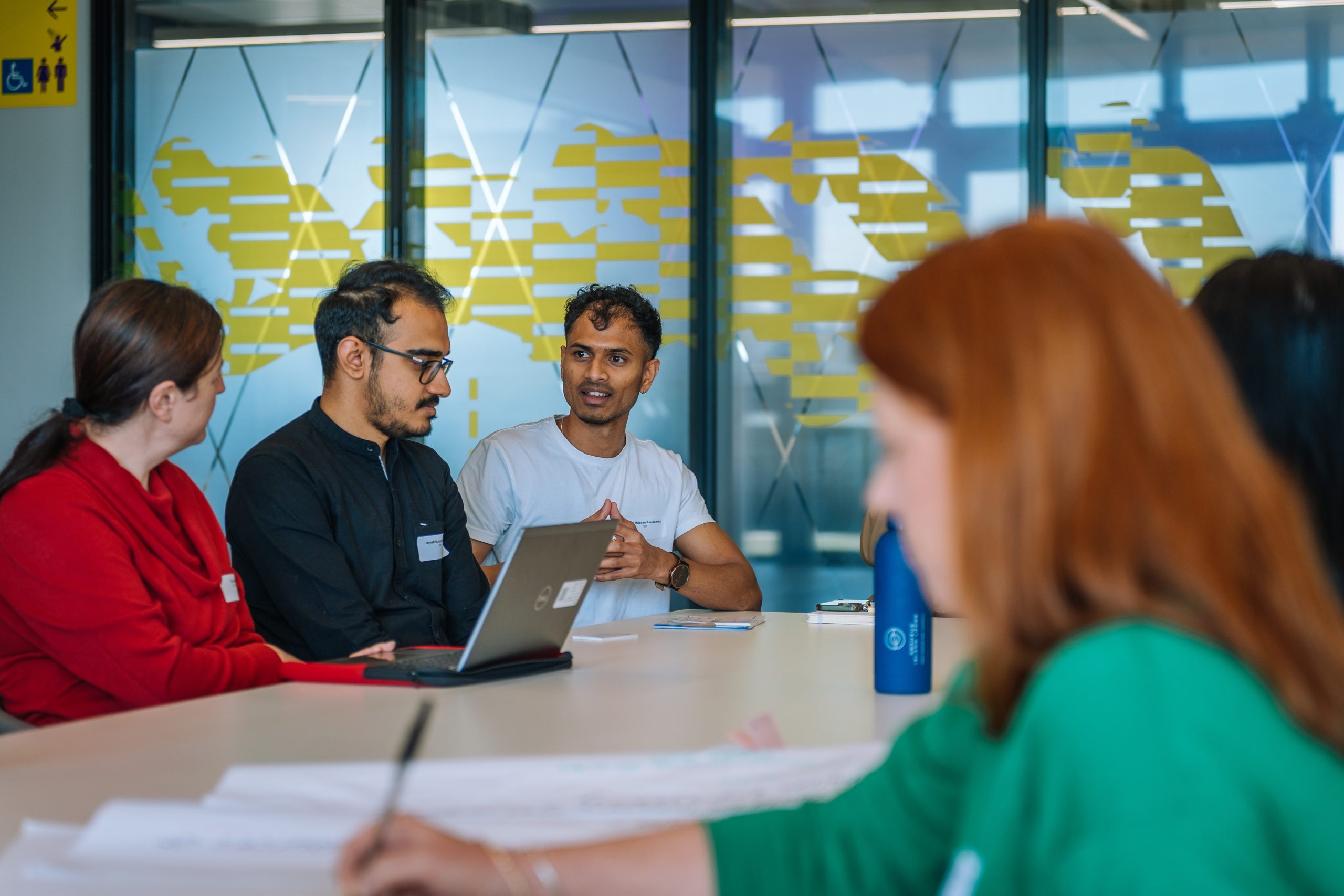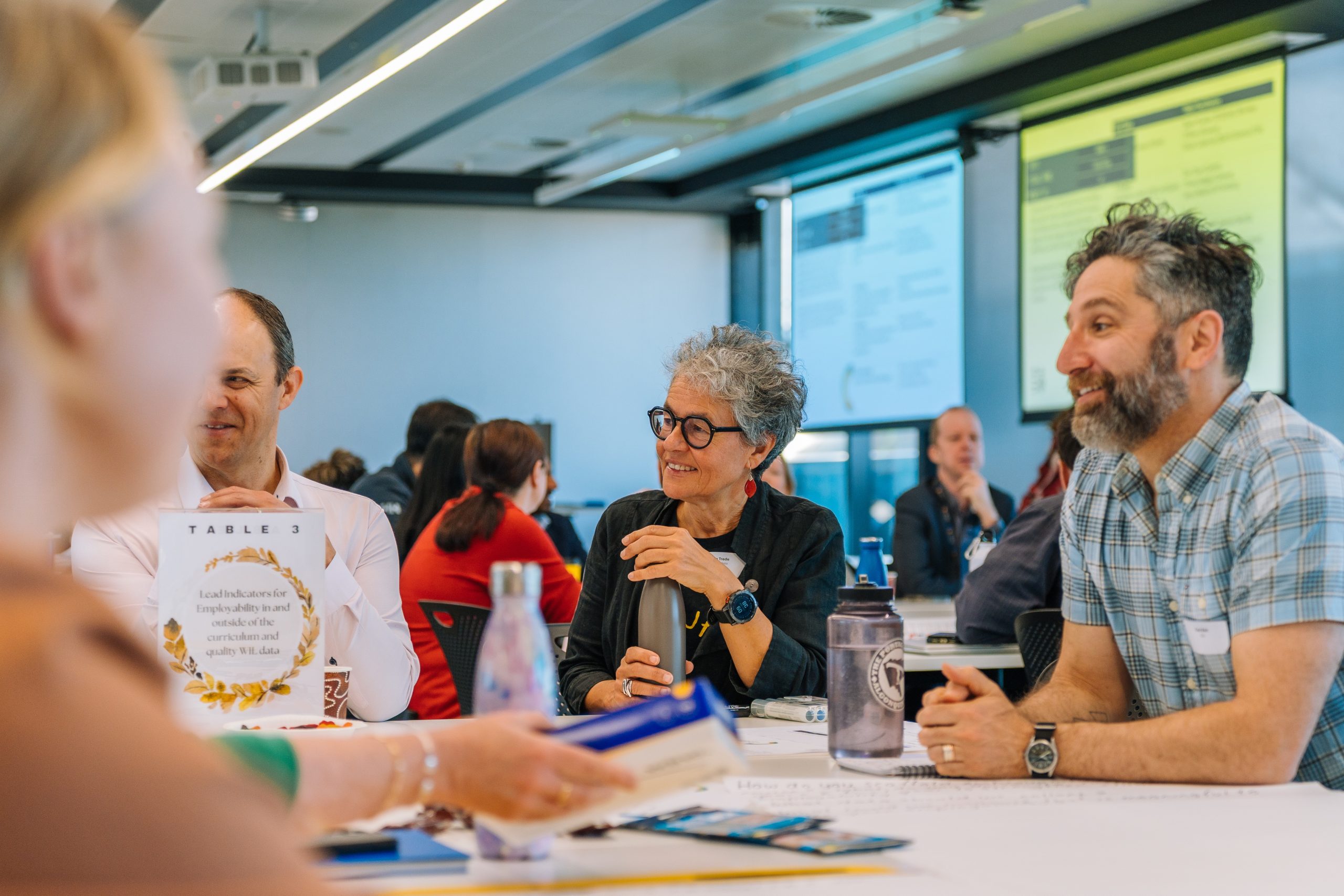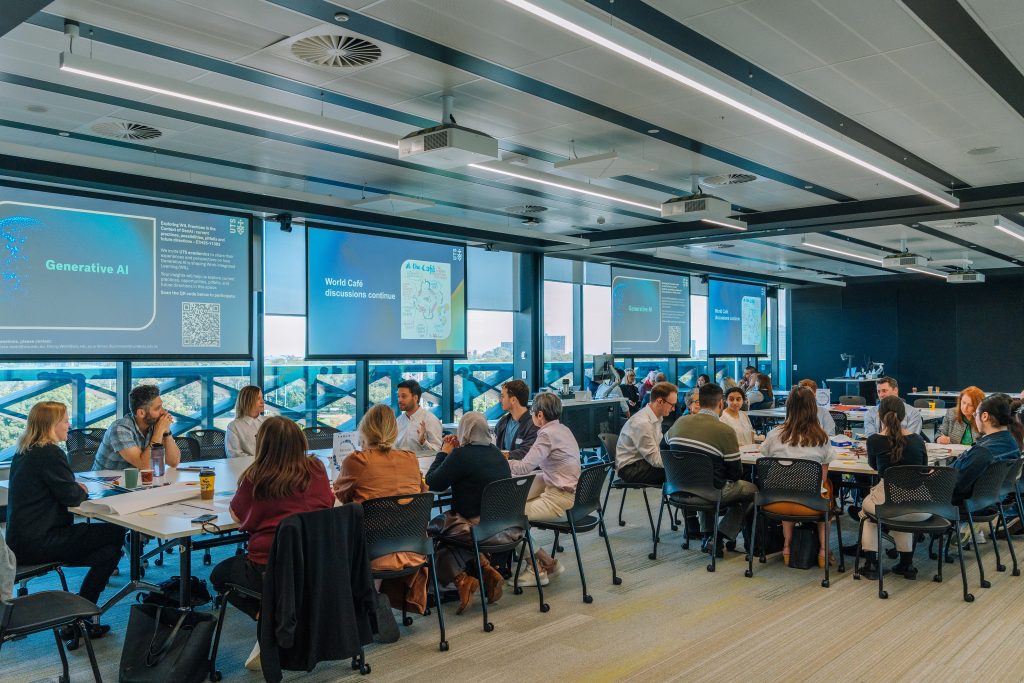On a sunny September day at the UTS Rugby Australia Building in Moore Park, UTS hosted its annual Work Integrated Learning Symposium. The event brought together a diverse mix of academics, industry professionals, and students to explore the evolving landscape of WIL and its role in preparing students for the future of work.
The theme of “Strengthening WIL: paving the way for future professionals” invited participants to consider the importance of connection and purpose when implementing quality WIL experiences. The 2025 event introduced a revised format that encouraged more audience interaction via a world café-style conference.
A collaborative spirit
One of the most striking aspects of the symposium was the strong sense of collaboration. Across the faculties and among student participants, there was a shared commitment to making WIL more purposeful and inclusive. The discussions highlighted that WIL is not just a pedagogical tool, but a shared learning journey that bridges theory and practice.
The Universities Accord was frequently referenced, reinforcing WIL’s central role in shaping higher education policy and practice. An opening address from Professor Franziska Trede emphasised that we must “practice what we preach” by embedding authentic, reflective, and equitable WIL experiences across disciplines.
GenAI and the future of WIL
A hot topic throughout the day was the integration of generative AI into WIL. While some students remain passive in their use of AI tools, there are growing expectations from employers for graduates to be confident and competent in using GenAI effectively.
Discussions raised several key points, including:
- Understanding the benefits of GenAI for curating information and saving time.
- Promoting secure platforms, such as Microsoft Copilot, within UTS or professional environments.
- Encouraging experimentation and critical engagement with GenAI across faculties.
There was also a cautionary note that GenAI has the potential to disrupt entry-level job markets, making it even more important to equip students with adaptable, future-ready skills.
Equity and access in WIL
Equitable access to WIL was a recurring theme. The symposium acknowledged the barriers faced by international students, students with accessibility needs, and those from underserved communities. Visa restrictions, workplace bias, and fear of disclosing personal challenges were all discussed as real obstacles.
Solutions that were discussed included:
- Diversifying WIL formats (online, in-person, international).
- Leveraging platforms like LinkedIn and events to build networks.
- Creating mentoring opportunities and classroom-based connections.
- Strengthening support through initiatives like UTS Shopfront.




Portfolios and reflective practice
The shift from traditional assessments to portfolio-based learning was another key focus at the symposium. Tools like Portfolium and the innovative CAREER Compass program are helping students document their learning journeys, showcase soft skills, and stand out in job applications.
Studio-based education models, particularly in FEIT, are flipping the script. In several studio subjects, students receive feedback instead of marks, encouraging deeper reflection and professional growth. Employers increasingly value this reflective process over grades alone.
Data, partnerships, and the road ahead
Improving the quality of WIL data was flagged as essential. Current graduate outcome surveys don’t capture the full student experience. There’s a need to collect data throughout the course lifecycle using tools like Qualtrics and CourseLoop.
Finally, the challenge of building strong external partnerships was discussed. Students entering WIL placements must have meaningful and practical experiences, rather than being assigned menial tasks to complete. This requires better alignment between university and industry expectations, adequate supervisor training, and creative non-placement WIL options.
Final thoughts
The panel discussion closed the symposium with a powerful reminder: for many students, especially Indigenous and first-in-family cohorts, WIL can feel out of reach. Financial pressures, lack of awareness, and limited support structures make participation difficult.
To truly strengthen WIL, universities must invest in inclusive and well-resourced experiences that start in the classroom and extend into the workplace. Mentoring, development of soft skills, and clear guidance around applications of GenAI are not just nice-to-haves; they’re essential.
Thanks to everyone who contributed to the success of this year’s UTS WIL Symposium. To keep up to date with all the latest WIL news at UTS, make sure to follow the UTS WIL Hub on SharePoint. We hope to see you at more WIL events in the future!
Photo credit: Ridha Fardian
